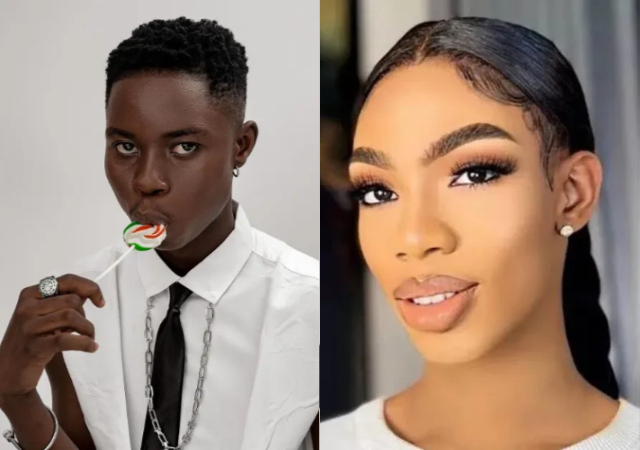Popular crossdresser James Brown found himself in the hot seat during a live TikTok session on September 25, 2024. TikTok influencer Habeeb Hamzat, widely known as Peller, confronted Brown over his controversial claims of visiting fellow crossdresser Bobrisky in prison, igniting a fierce debate about truth, loyalty, and the blurred lines between reality and social media personas in Nigeria’s entertainment landscape.
As the clock struck 8:00 PM Nigerian time, thousands of viewers tuned in to what they thought would be a routine live session with James Brown. However, the atmosphere quickly shifted when Peller joined the stream, his face set in determination.
James, we need to talk about your claims of visiting Bobrisky in prison,” Peller began, his voice steady but tinged with frustration. “Where exactly did you see him? We need details, and we need them now.”
The tension was palpable as James Brown, visibly taken aback, struggled to compose himself. “I did visit Bobrisky,” he insisted, his signature flamboyance momentarily subdued. “Why would I lie about something like that?”
To understand the weight of this confrontation, we need to rewind to earlier this month when James Brown made headlines by claiming he had visited Bobrisky in prison. The crossdresser even went as far as posting photos with a prison officer, seemingly corroborating his story.
Social media expert Adebayo Ogunleye explains the impact of such claims: “In Nigeria’s tight-knit entertainment community, gestures of support during tough times are highly valued. James Brown’s alleged visit was seen as a powerful show of solidarity.
However, the narrative took a sharp turn when social media activist Verydarkman dropped a bombshell, revealing that Bobrisky was never actually incarcerated. This revelation sent shockwaves through Nigerian social media, casting doubt on James Brown’s integrity and motivations.
As the live session continued, Peller’s questioning became more pointed. “James, you need to come clean,” he pressed. “The photos, the story – it’s all looking very suspicious now.”
Viewers watched in real-time as James Brown’s demeanor shifted from surprise to defiance. “I stand by what I said,” he reiterated, his voice rising slightly. “I visited Bobrisky, period.”
The exchange quickly became heated, with Peller interrupting Brown’s explanations, demanding clarity on specific details of the alleged prison visit. The live chat exploded with comments, ranging from support for James Brown to calls for accountability.
TikTok user @LagosBabe23 commented, “James, we love you, but we need the truth!” while @NaijaHustler wrote, “This is getting messy. Someone needs to come clean ASAP.”
Adding another layer to this unfolding drama, Bobrisky himself took to Instagram on September 25 to address the swirling controversy. In a strongly worded post, he not only denied the bribery allegations made by VeryDarkMan but also threw a curveball into the James Brown narrative.
“I have already served my time,” Bobrisky stated emphatically in his post. Any claims of bribing EFCC officers or special treatment are completely false.” This statement implicitly contradicts James Brown’s story of a prison visit, further muddying the waters of this celebrity scandal.
This confrontation between James Brown and Peller, played out live for thousands to see, highlights the complex relationship between Nigerian celebrities, their online personas, and their audience.
Dr. Nnamdi Okafor, a media studies professor at the University of Lagos, offers insight: “What we’re witnessing is the real-time unraveling of a carefully crafted narrative. It raises important questions about authenticity, the pressure to remain relevant, and the consequences of fabricating stories in the digital age.”
The incident has sparked a broader conversation about accountability in Nigeria’s entertainment industry. Many are calling for a return to authenticity, while others argue that the line between performance and reality has always been blurred in showbiz.
As the dust settles on this explosive confrontation, the implications for James Brown’s career and the wider Nigerian entertainment industry remain to be seen. Will this incident lead to a more discerning audience? Or will it be chalked up as just another day in the drama-filled world of Nigerian showbiz?
One thing is certain, the landscape of celebrity culture in Nigeria is evolving rapidly, with social media playing an increasingly central role in shaping narratives, challenging claims, and holding public figures accountable.
As we await further developments in this unfolding story, one can’t help but wonder, in an era where likes, shares, and viral moments often trump truth, what does authenticity really mean for Nigeria’s digital-age celebrities?




